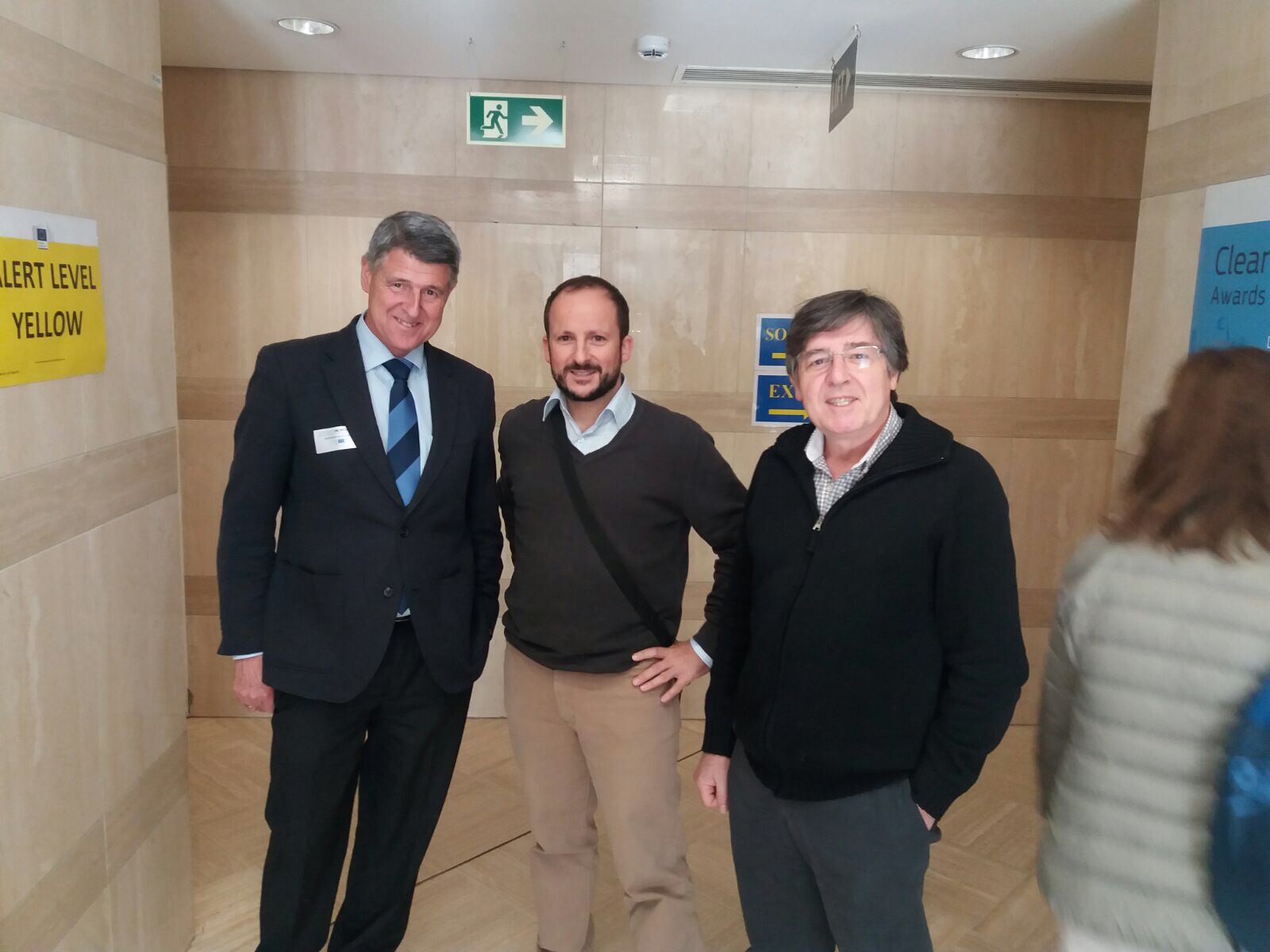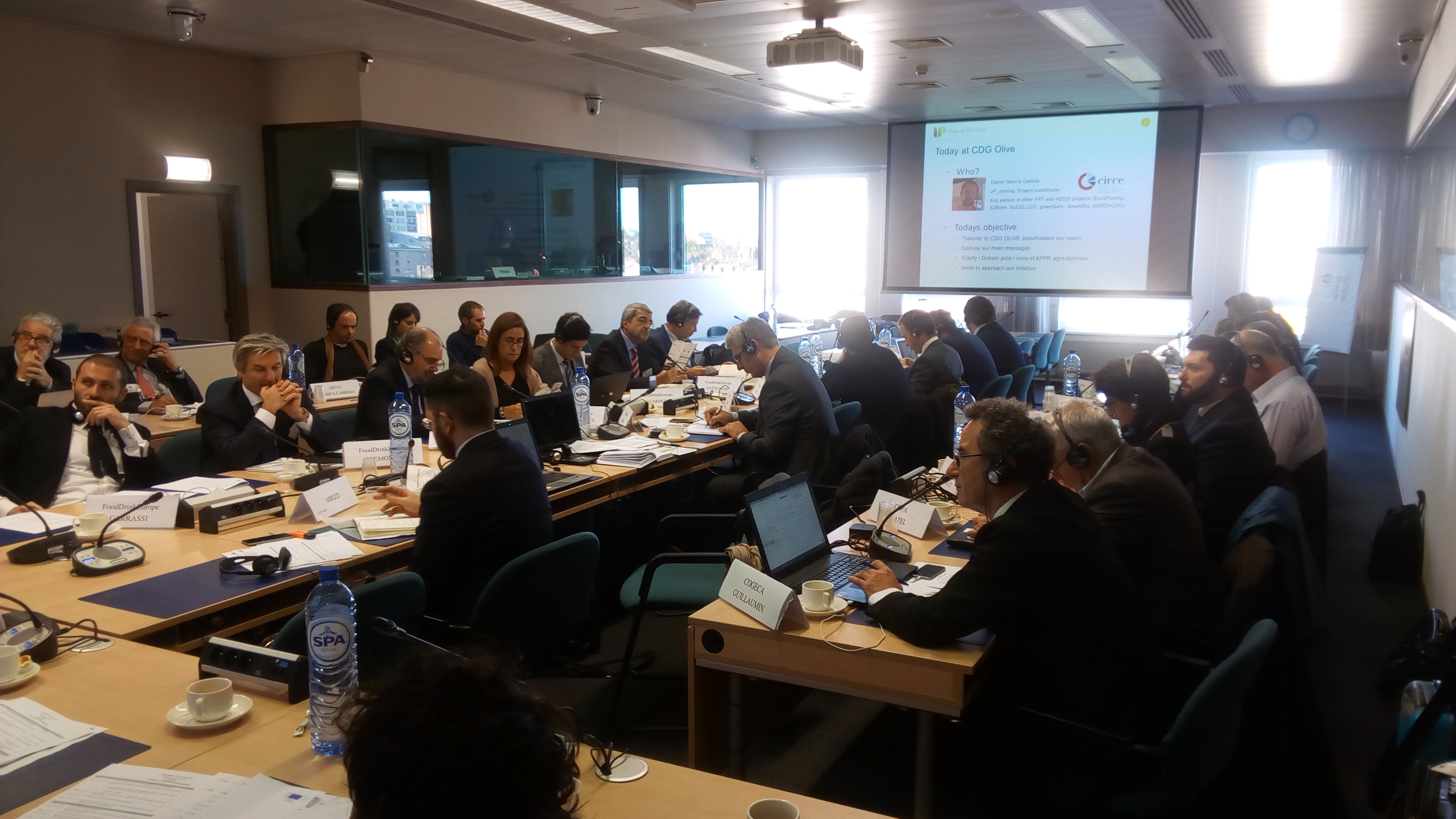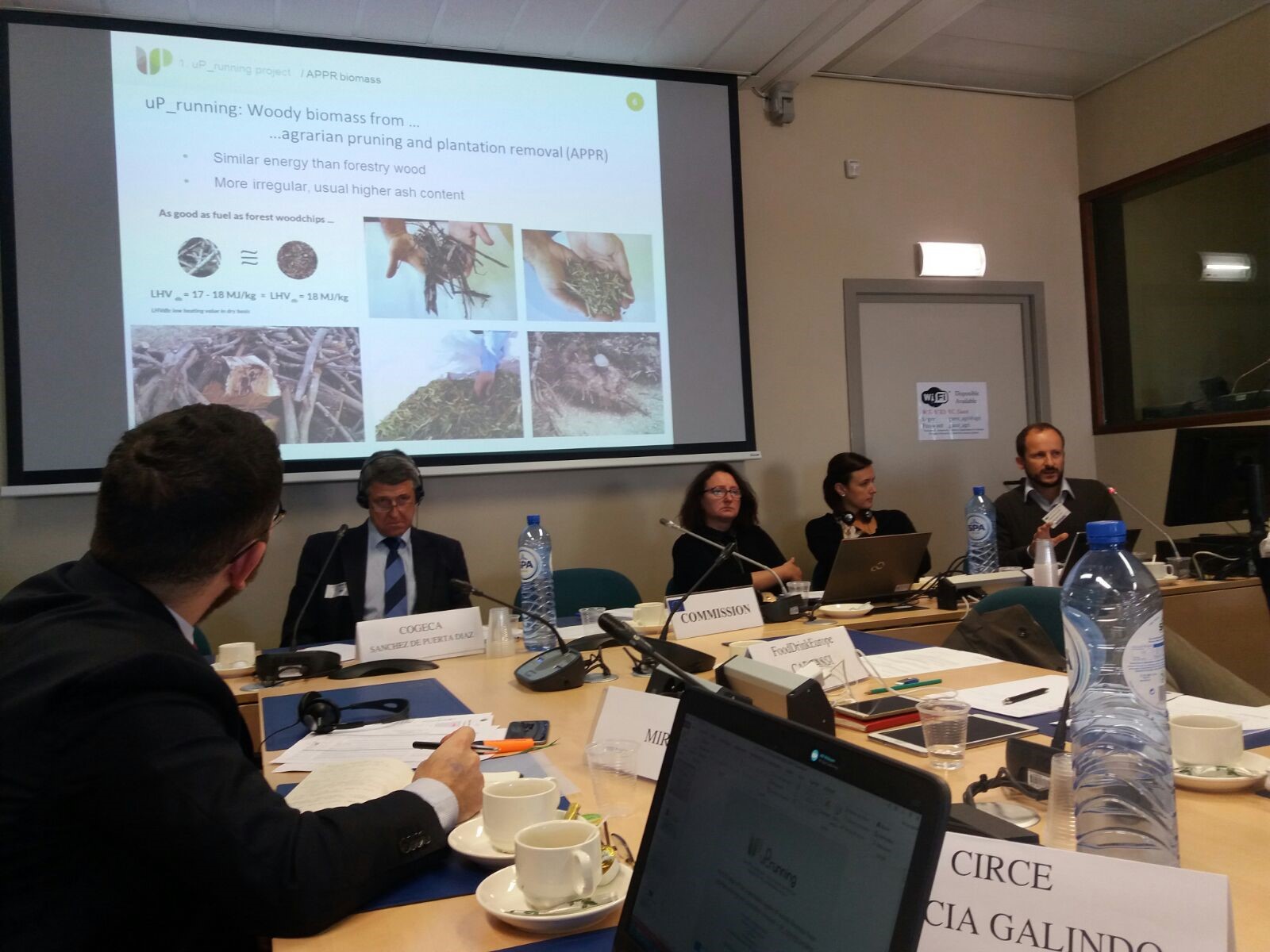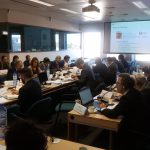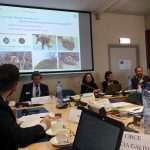The European Olive lobby received proposals from uP_running in Brussels
November
24
2017
CIRCE and HPK participated at the CDG on Olives organized at the headquarters of the General Directorate of Agriculture of the Commission to launch proposals that encourage the use of biomass for pruning and plantation removals.
Recently the uP_running partners’ started to make a strategic plan for the use of biomass from agricultural pruning and plantation removals (APPR biomass) at European level. One of the first steps is to propose to the lobbies (Olive, Wine, Sustainable Development policies, etc.) and to the Commission proposals from the strategic plan which is being prepared, and their implementation into European rural development policies, agriculture, energy and climate, circular economy and emissions.
Daniel García, project coordinator and part of the staff of the CIRCE Foundation, has participated in Brussels at the invitation from the CDG on Olive, in organization with Croatian Chamber of Agriculture and Copa-Cogeca, to present the vision and proposals of uP_running.
There are several CDGs in European Commission, known as the “Civil dialogue groups”, which were formerly the “advisory committees” of the Commission. Their function is to assist the Commission and maintain a dialogue on a regular basis, and in the case of the CDG Olives, assist in the implementation of policies and new measures, exchange experiences, advise the Commission, facilitate the opinion or monitor the development of the policies.
CDG on Olive, chaired by members of the General Directorate of Agriculture (DG Agri) includes a total of 53 delegates from 15 associations of European entities of various profiles: agricultural as COPA-COGECA, consumers as BEUC, agro-industry as Food and Drinks Europe, or environmentalist as Birdlife Europe. The president of CDG on Olive is Mr. Rafael Sánchez Puerta (president of DCOOP, the world’s largest olive oil operator and he is responsible for the sector of Olive Oil from Agri-food Cooperatives of Spain).
Daniel García has structured his exposition first by presenting the need for a project such as uP_running and its strategy. He stressed that it is a project “with the sector” and “for the sector” and that uP_runing vision and objectives are in line with European policies and that it aims to achieve a change in the management of waste from pruning and agricultural startups (PARP).
He has presented two successful stories, stressing that, however, economic viability is not always possible in the current framework of low energy prices. But in turn, it has shown how new initiatives can be structured so they could generate benefits or economic savings for all the actors involved (tangible economic gains), as well as others (intangibles) that can be relevant for public entities, rural populations, or agrifood companies such as the improvement of air quality in rural environments, the creation of rural employment, the generation of an image or brand of sustainability, among others.
Finally, Daniel García has presented several argued messages that are summarized as follows:
• The use of pruning remains as energy reduces CO2 emissions even more than leaving it as crushed on the ground
• There is a potential in Europe of more than 30 million tons per year of biomass of PARP (dry matter estimate)
• The use of PARP biomass is a catalyst for rural development
• The development of the bioeconomy in Europe needs to mobilize this type of waste
• The emissions generated in modern facilities are minimal, and therefore the use of PARP biomass is not harmful.
Under this perspective, uP_running has requested that these positive effects should be taken into account, and in line with the arguments of European policies, in order to consider the use of PARP biomass in European energy policies, rural development, of circular economy, and emissions and environmental quality.
This activity is expected to culminate in May 2018 with an event in Brussels targeted to Europeans and sectoral associations in the agricultural, energy and environmental fields.

